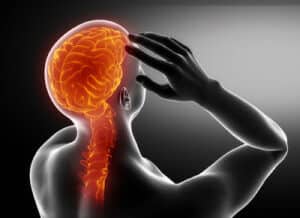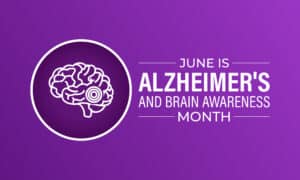What is Alzheimer Disease in Neurology?
Alzheimer’s disease is a degenerative brain disorder that impairs memory, cognitive function, and behaviour. One of the less-discussed but significant impacts of Alzheimer’s is on speech and communication. Understanding these speech problems can help caregivers provide better support to those affected.

What Are Speech Problems in Alzheimer’s?
Alzheimer’s disease often leads to various speech and language difficulties. These issues typically arise because the disease damages the brain regions responsible for language processing.
Types of Speech Problems in Alzheimer
- Aphasia: This is a common language disorder in Alzheimer’s patients, characterised by difficulties in expressing or understanding spoken or written language.
- Anomia: Patients struggle to find the right words during conversations, often pausing or substituting incorrect words.
- Echolalia: Repetition of phrases or sounds spoken by others is another symptom seen in advanced stages of Alzheimer’s.

Global Status of Alzheimer’s Disease:
Understanding the prevalence and impact of speech problems in Alzheimer’s can highlight the importance of addressing these issues:
- According to the Alzheimer’s Association, nearly 6 million people in the U.S. are living with Alzheimer’s, and about 90% of them experience some form of speech or language difficulty.
- Studies indicate that up to 40% of Alzheimer’s patients develop aphasia at some stage of the disease.
- Research published in the Journal of Alzheimer’s Disease suggests that early speech therapy can significantly improve communication skills in Alzheimer’s patients.
Causes of Speech Problems in Alzheimer’s
Brain Changes
Alzheimer’s disease causes atrophy in the brain areas involved in language, such as the temporal and frontal lobes. This damage leads to difficulties in processing and producing language.
Cognitive Decline
As cognitive functions decline, patients find it challenging to follow conversations, understand complex sentences, or remember words.
Identifying Speech Problems
Early identification of speech problems can lead to better management. Caregivers and healthcare professionals should look for signs such as:
- Frequent pauses during conversations
- Substituting incorrect words
- Repeating phrases or questions
- Difficulty in understanding spoken or written language

Managing Speech Problems in Alzheimer’s
Speech Therapy
Speech-language pathologists can provide specialised therapy to help patients improve their communication skills. Techniques may include:
- Language Exercises: Activities designed to strengthen language abilities.
- Alternative Communication Methods: Using gestures, pictures, or electronic devices to aid communication.

Caregiver Strategies
Caregivers play a crucial role in managing speech problems. Effective strategies include:
- Simplifying Communication: Using short sentences and simple words.
- Patience and Encouragement: Allowing extra time for responses and encouraging communication efforts.
- Non-Verbal Cues: Using facial expressions and gestures to support verbal communication.
Conclusion
Speech problems in Alzheimer’s disease significantly impact the quality of life for patients and their caregivers. Early identification, speech therapy, and effective communication strategies can help manage these challenges. At Dr. Vanchilingam Advanced Neurology and Stroke Hospital, the best neurology hospital in Chennai, we are dedicated to providing comprehensive care and support for Alzheimer’s patients and their families. We have the latest equipment in our labs to ensure patients receive the highest quality care. Our expert team is committed to improving the lives of those affected by Alzheimer’s through advanced treatments, compassionate support, and ongoing research. Trust Dr. Vanchilingam Hospital to be your partner in navigating the complexities of Alzheimer’s disease, providing hope and better outcomes for patients and their loved ones.








